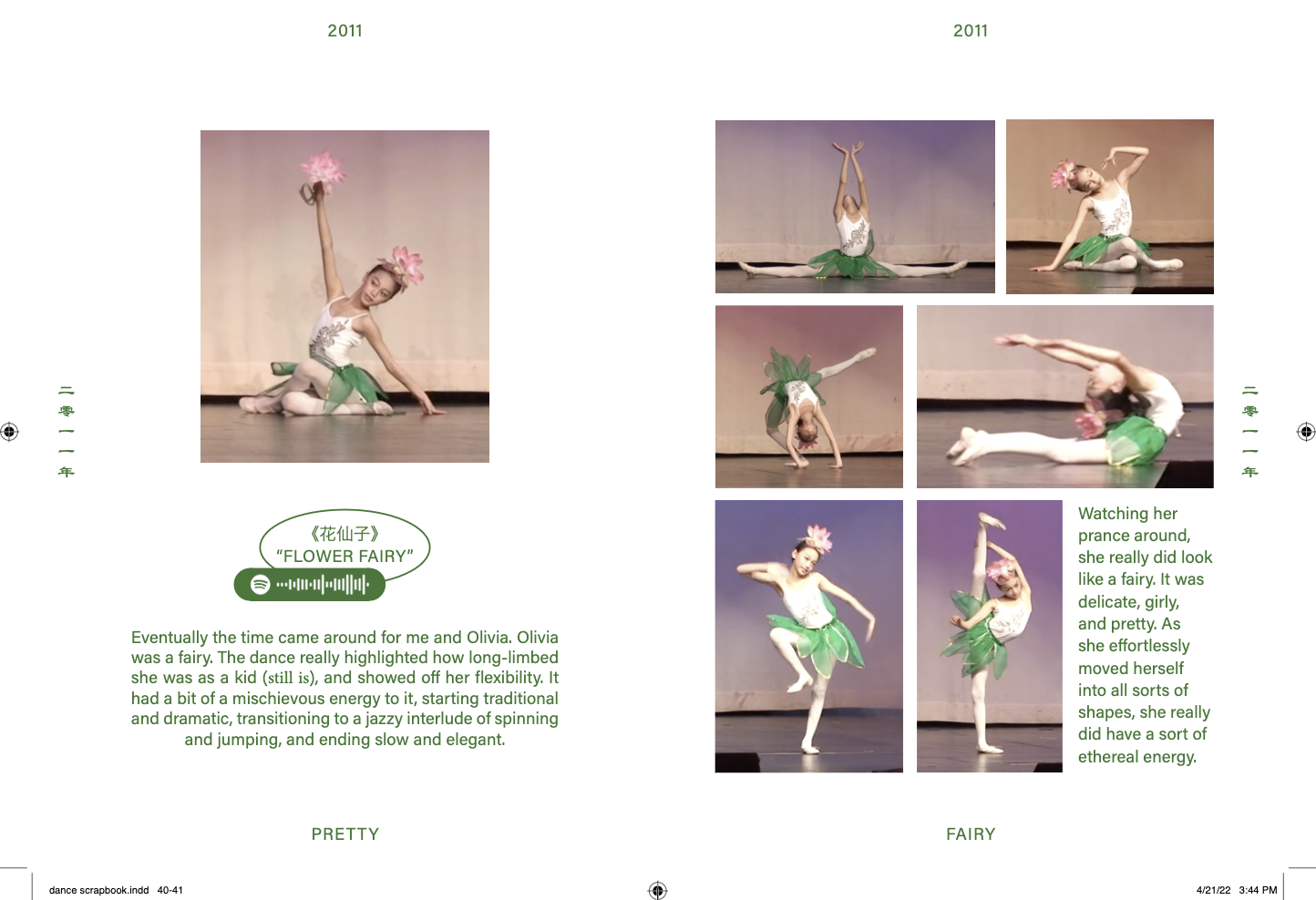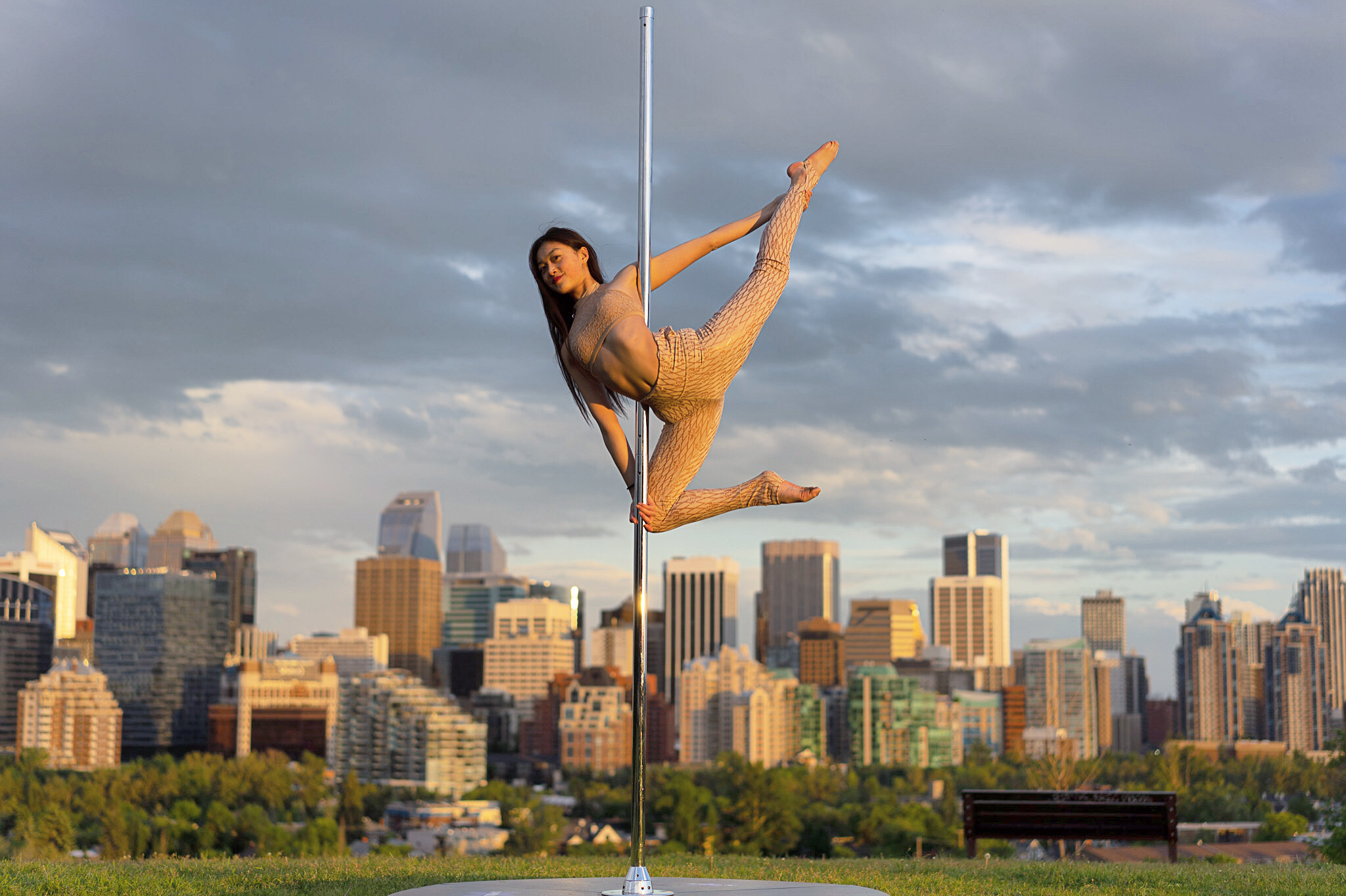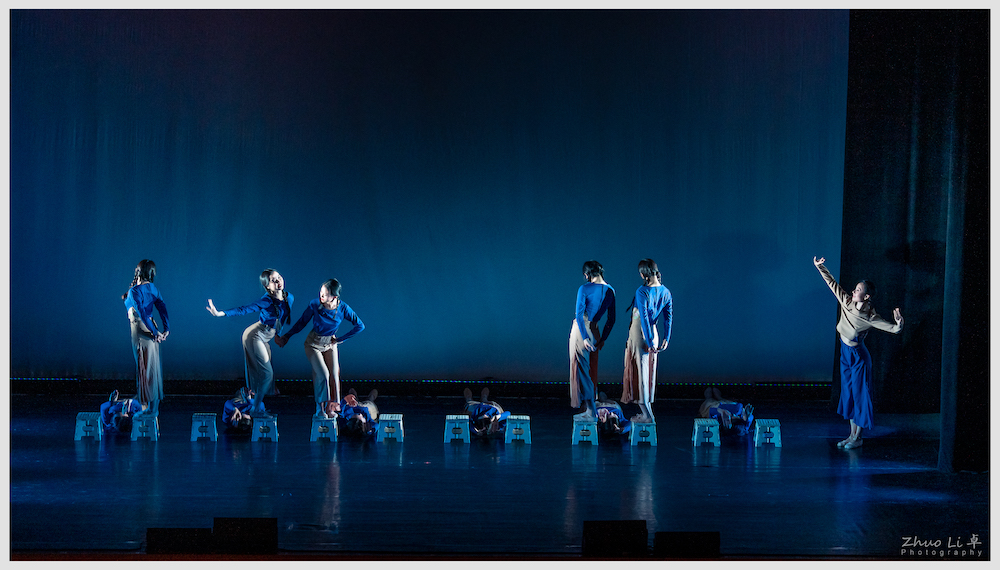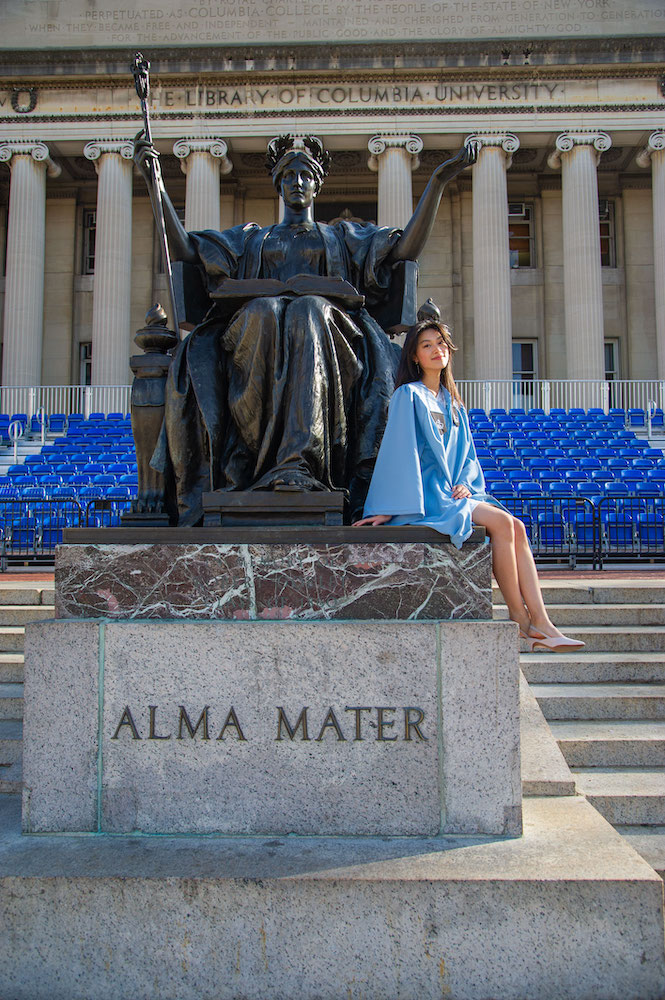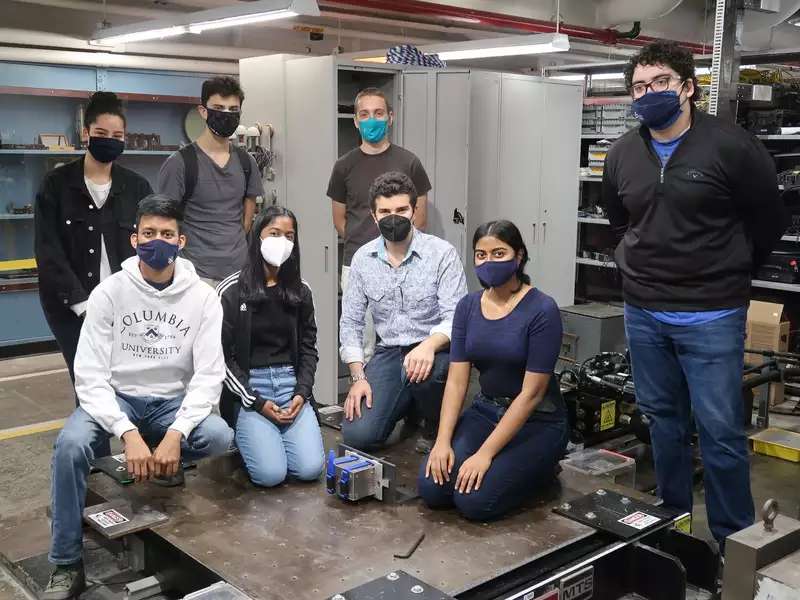Olivia Bingyu Wang ’22: I started dancing at age 4, and my mother immediately placed me into a boot camp for traditional Chinese dance with a competitive Chinese dance company in Calgary, Alberta, Canada. My Chinese heritage has always pushed me to appreciate the feeling of overcoming challenges to achieve new skills and perfection. However, after moving to Chengdu at age 13 and then to Shanghai at 14 with my family, from middle school onward, I — ironically — could not find a Chinese dance company to join. In China, most of the dance schools are either full-time commitments or for younger children.
Fast forward to the spring of my junior year in high school, when a friend invited me to try pole dancing with her, as it had become a new trend in Shanghai. I was uncertain about attending the class because of the cultural context I was living in, in which pole dance was seen as overtly sexual and for the male gaze. I didn’t want to associate myself with the art form. However, as an avid dancer and enthusiast of all new and different dance styles, I went to the class. I thought, “How can you judge an art form if you don’t even try it or try to understand it?” Moreover, the dance program at my international school mainly taught jazz, contemporary, and hip-hop choreography, so I thought trying out pole dance could be a good way to expand my artistic toolkit and push myself to learn something outside of my comfort zone.
My pole dance journey began in China, so a lot of the technique and style was influenced by Chinese standards of beauty and artistic appreciation. For example, I began by learning spin pole, where the pole spins on its own. The movements were fluid and gracefully matched with lyrical music. The tricks pushed the limits of my flexibility. It reminded me of the intensity of the competitive Chinese dance I grew up with, and I loved it. Starting pole dance involved a steep learning curve. Every class, I would learn something new and impress myself.
I eventually realized that flexibility and a dance background would get me only so far — I needed strength to progress. Building upper body and core strength continues to be a challenge. My body has gone through significant changes in shape and size since beginning this style of dance, and I struggled with accepting the beauty of a muscular and larger frame in a culture where beauty was defined as being as wide as an A4 piece of paper. During that struggle, I decided to start my pole dance Instagram account in order to share my progress, failures, and growth.
I grew up celebrating my Asian heritage through dance. It allowed me to showcase and to be proud of a dance form that was underrepresented and underappreciated in Calgary. At my elementary school, I was one of five Asian students in my class. I was the only Asian student who trained in Chinese dance. I opted to perform during school talent shows, despite Chinese culture being marginalized in Canada.
Moving to China as a young teenager, I was surrounded by my own culture yet seen as separate from the locals — I was neither a foreigner nor fully Chinese. I still pursued Chinese dance by seeking out private lessons and integrating it into my dance performances and program exams during high school.
I also developed a passion for mental health awareness that is culturally responsive to underserved populations and incorporated interpretations of different disorders into dance pieces I choreographed and performed. With pole dance, it has been my mission to bring my own artistic vision into choreography. Now that I have pole technique and a variety of tricks to play with, I try to choreograph different pieces based on my Chinese dance background. I want to raise awareness of what another presentation of pole dance can look like and how different dance forms can merge and create new art. Moving forward, I want to choreograph more Chinese pole dance and continue to use pole dance as a medium for mental health awareness.
In addition to majoring in economics and psychology, I am a member of Psyched: The Barnard Psychology Society, Columbia China Dance, Alpha Kappa Psi Professional Business Fraternity, and TAMID Group. My research interest lies in cross-cultural differences in attitudes toward therapy. Specifically, I am interested in how technology and psychology can be used to increase access, decrease stigma, and make mental health resources more affordable to underserved global populations.
After Barnard, I will work as a strategy consultant in NYC and continue to pursue new forms of dance. I will teach pole dance classes and private lessons for anyone who is interested in learning something new. I promise to continue to use dance as a method to lift up causes that I am passionate about and challenge societal norms that need a new perspective. I am grateful for everyone I’ve met and have come to love and admire at Barnard/Columbia and hope to inspire others to explore beyond their comfort zone, in college and beyond.
—OLIVIA BINGYU WANG ’22
